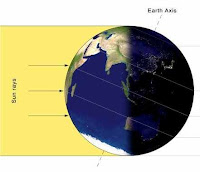Depending how the calendar drops, the December solstice occurs annually on the day between Dec 20 and twenty three. This year, the actual December solstice may occur at 05: thirty UTC (12: thirty a. m. S'AVÈRE ÊTRE) on Dec 22, 2011. As the southern hemisphere is that great long days associated with summer, the northern hemisphere may have the “winter solstice” – known as the shortest day from the year.
Conversely, 6 months ago the north hemisphere experienced the actual longest day using the summer solstice, using the southern hemisphere getting their winter solstice. This is a part of a never closing cycle and is in the centre of our months.
 So, why do all of us call it the actual shortest day from the year for the wintertime solstice and longest day for that solstice in summer time? Do we lose a while off the time clock in winter, and in summer time do we miraculously gain time about the clock in the bizarre cycle that's imposed by old men responsible for calendars and times all over the world? (I accustomed to think this like a small boy…)
So, why do all of us call it the actual shortest day from the year for the wintertime solstice and longest day for that solstice in summer time? Do we lose a while off the time clock in winter, and in summer time do we miraculously gain time about the clock in the bizarre cycle that's imposed by old men responsible for calendars and times all over the world? (I accustomed to think this like a small boy…)
The truth is we don’t shed or gain whenever; what we really gain or shed is hours associated with sunlight. During the wintertime solstice we have the least amount of sunlight from the year on which day.
To understand the wintertime and summer solstices we have to recognize a fundamental fact concerning the Earth. Earth’s axis associated with rotation is tilted around 23. 5° from the vertical axis. Which means that as the tilted Earth orbits the sun's rays during the 12 months, the different hemispheres receive varying levels of sunlight, as this tilt leads to sunlight to strike the top of Earth from different angles from different times associated with year.
In summer time, we see the sun's rays for longer amounts of time and it appears full of the sky; the Sun’s rays tend to be more direct and heat energy is much more abundant. In the wintertime, when the Sun is lower in the sky as well as appears for less period of time; there is less energy and also the Sun therefore heats much less efficiently.
 If you reside near the equator, you won’t discover much difference in the quantity of sunlight you receive throughout every season. The biggest noticeable difference reaches the poles, where each solstice provides an extreme within the hours of sunlight you obtain; in summer the sun's rays never properly models for weeks, as well as in winter this never rises, creating probably the most inhospitable environments on the planet.
If you reside near the equator, you won’t discover much difference in the quantity of sunlight you receive throughout every season. The biggest noticeable difference reaches the poles, where each solstice provides an extreme within the hours of sunlight you obtain; in summer the sun's rays never properly models for weeks, as well as in winter this never rises, creating probably the most inhospitable environments on the planet.
I always discover the solstices to end up being magical times associated with year and anticipate either the greatest or shortest days because they are the bringers associated with seasons, darkness as well as light.
Conversely, 6 months ago the north hemisphere experienced the actual longest day using the summer solstice, using the southern hemisphere getting their winter solstice. This is a part of a never closing cycle and is in the centre of our months.
 So, why do all of us call it the actual shortest day from the year for the wintertime solstice and longest day for that solstice in summer time? Do we lose a while off the time clock in winter, and in summer time do we miraculously gain time about the clock in the bizarre cycle that's imposed by old men responsible for calendars and times all over the world? (I accustomed to think this like a small boy…)
So, why do all of us call it the actual shortest day from the year for the wintertime solstice and longest day for that solstice in summer time? Do we lose a while off the time clock in winter, and in summer time do we miraculously gain time about the clock in the bizarre cycle that's imposed by old men responsible for calendars and times all over the world? (I accustomed to think this like a small boy…)The truth is we don’t shed or gain whenever; what we really gain or shed is hours associated with sunlight. During the wintertime solstice we have the least amount of sunlight from the year on which day.
To understand the wintertime and summer solstices we have to recognize a fundamental fact concerning the Earth. Earth’s axis associated with rotation is tilted around 23. 5° from the vertical axis. Which means that as the tilted Earth orbits the sun's rays during the 12 months, the different hemispheres receive varying levels of sunlight, as this tilt leads to sunlight to strike the top of Earth from different angles from different times associated with year.
In summer time, we see the sun's rays for longer amounts of time and it appears full of the sky; the Sun’s rays tend to be more direct and heat energy is much more abundant. In the wintertime, when the Sun is lower in the sky as well as appears for less period of time; there is less energy and also the Sun therefore heats much less efficiently.
 If you reside near the equator, you won’t discover much difference in the quantity of sunlight you receive throughout every season. The biggest noticeable difference reaches the poles, where each solstice provides an extreme within the hours of sunlight you obtain; in summer the sun's rays never properly models for weeks, as well as in winter this never rises, creating probably the most inhospitable environments on the planet.
If you reside near the equator, you won’t discover much difference in the quantity of sunlight you receive throughout every season. The biggest noticeable difference reaches the poles, where each solstice provides an extreme within the hours of sunlight you obtain; in summer the sun's rays never properly models for weeks, as well as in winter this never rises, creating probably the most inhospitable environments on the planet.I always discover the solstices to end up being magical times associated with year and anticipate either the greatest or shortest days because they are the bringers associated with seasons, darkness as well as light.
No comments:
Post a Comment